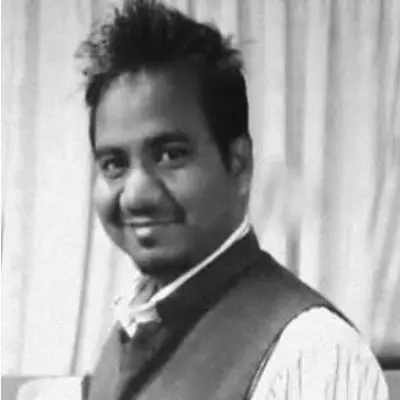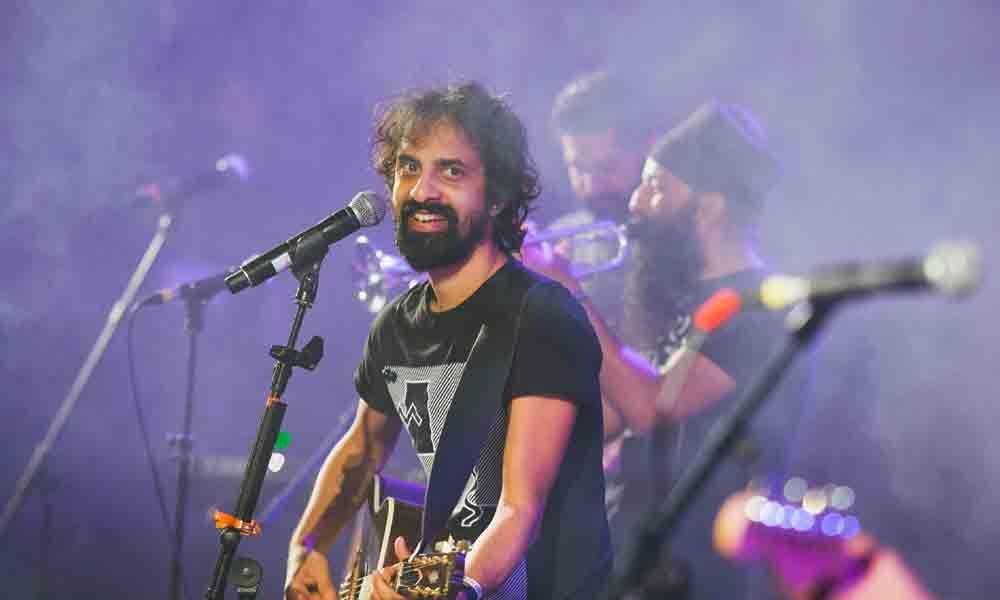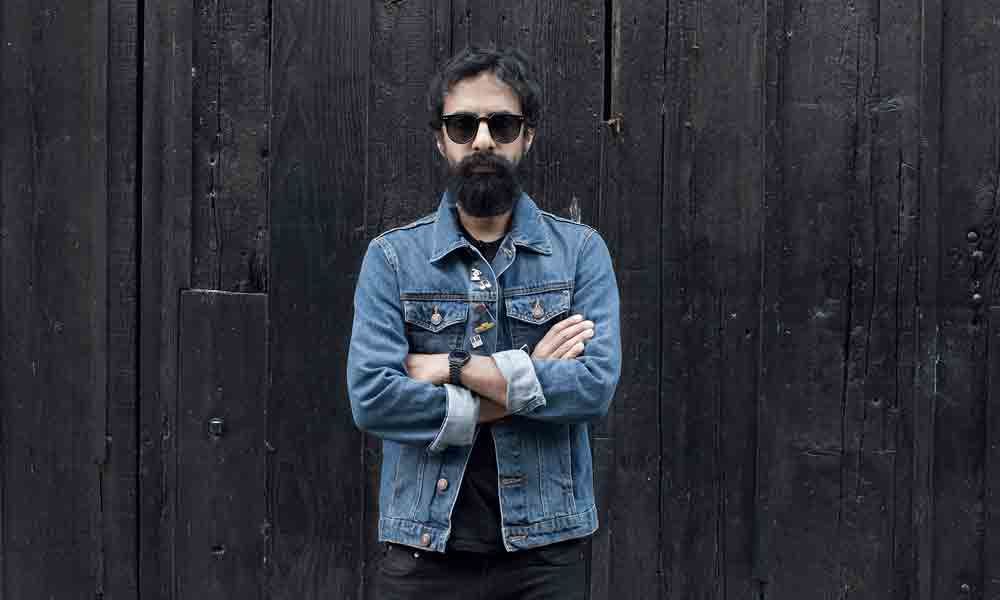Live
- CM Revanth lays foundation stone for devpt works worth Rs 192 cr in Medak
- Rich tributes paid to Vajpayee on 100th birth anniversary
- DRM pats Ati Vishisht Rail Seva Puraskar recipient
- MP calls for economic empowerment of women
- Asifabad: Despite huge numbers, Banjaras lagging behind
- Hyderabad: 2 arrested for smuggling; 281 starfish, 160 tortoises seized
- Formula E race: ACB intensifies probe, to focus on KTR’s role
- Muslim students express concern over SSC exam, Ramzan date clash
- ‘Pushpa 2’ team pledges Rs 2 cr to stampede victim’s family
- More remote habitations to get road connectivity
Just In
In 2000, with a hotel management degree, and a dream to record an acoustic album in an era dominated by electronica, Ankur Tewari set out from Roorkee, Uttarakhand. It took him 10 years—from dealing with snide hotel guests in Delhi to living in a chawl in Mumbai while he made the rounds of music label offices— Tewari made his debut album, 'Jannat', in 2010. Today, having made a mark with his Hindi rock band, 'Ankur & The Ghalat Family' known for what they best describe as Urdu and Hindi easy acoustic ballads folk rock/rock n roll, penning lyrics for big Bollywood films like 'Soundtrack' (2011) and 'Chef' (2014), and supervising the music as well as composing songs for Zoya Akhtar's next, 'Gully Boy', the 41-year-old is one of the most sought-after Hindi singer-songwriters in the business. This year he released an Indie Ambient Electronica EP in January with Gaurav Raina and Karsh Kale called 'Little Whale'.
Excerpts from an interview:
Brief our readers about the role of a music supervisor in a film?
Role of the music supervisor in a film is one of where you make the music plot or the film according to the whole screenplay. It includes the score, the songs, the silences, basically how film sounds. It could be like an audio version of a production designer mixed with a casting director.
What kind of research did you do to choose 18 tracks for 'Gully Boy' ?
The main research that went into 'Gully Boy' was about listening to a lot of material from young artistes in Mumbai, mainly because the film is set in Mumbai. And the whole idea was to listen to a lot of scratches that existed from scribbles on paper, to demos over there to already existing songs, kind of deep dive into the history of hip hop in India and in Mumbai, try and work with a diverse set of hip hop artists, some of them who've been around for a few years, some of them just about starting to completely new ones. Also trying to engage with different producers, who have produced hip hop in the past from around the world and make them collaborate with the younger artistes that are found working in Mumbai.
What were the merit points to choose these tracks?
The primary thing that we were looking for was authenticity and honestly in the words. The words were in the forefront; we were looking for exciting words, exciting thoughts that express what these young artistes are going through.
What led you to pursue a career as a music supervisor?
Frankly, it was just a call from Zoya saying that I should be the music supervisor for film and the script was so engaging and it was so exciting that you would want to be associated with it in any form. Fortunately for me, I had some experience in music and working with hip hop artistes in Mumbai. So, it helped the case but if she had cast me in any other department in this film, I would have done that as well.
Aside from value and buzz factor, what are some of the benefits of placing music by unsigned or independent artistes?
When you look at music, you don't look at music as music by an unsigned artiste or independent artiste, you just look for songs that work for the script. Sometimes you could end up working with people who have made interesting music in the mainstream arena before as well. It's just that kind of perspective that you get, and you bring to the script. It's important how you use the music, as important as what kind of music is being used. A lot of times in the film, something that worked for us was actually using silence more than music. I don't like classifying musicians under brackets like signed, unsigned, mainstream, independent highlight compositions, I'd like to work with all sorts of musicians.
How do you discover new music on your own time?
I am damn curious about new music. I keep on listening to music, I keep on asking interesting musicians, who I meet, whose work I appreciate to share, the music that they are making, to the music they're listening to sometimes other artistes, who are writers, poets, painters to share the music that they're listening to and enjoying and in that process, you know, when you ask someone, just off the cuff, maybe just to impress you or to excite you. People do end up sharing amazing music that probably is flying under the radar.
What does a perfect email from an artist look like from a music supervisor's point of view?
The perfect email from an artiste has an attachment of the song. When you're attaching something, a lot of times people send emails saying that they will send songs and I feel that it's best to cut the chase and get to the point as soon as possible. I like honesty in musicians, who express themselves as honestly as they can. Sometimes conversations start and people try to sneak in songs. So, it's best that people you know, cut the chase and get to the point as soon as possible.
What are the terms of a license that musicians should be aware of?
Indian copyright law is very interesting. Now it's in a very interesting standpoint people should be aware of that whatever anybody, any company may end up signing from you, they can never take the underlying from you. And in any circumstance, just a legal in fact is illegal to the point that even if somebody gets a sign from you, it won't stand in court. So, the author and the composer shall always be the owner of the songs forever. People can exploit the recordings, publishing houses, music labels can exploit the recording in perpetuity, but the work will always remain with the author and the composer and they shall, in perpetuity, receive royalties and after they pass away, then their estate will receive the royalties for the work that they've created.

© 2024 Hyderabad Media House Limited/The Hans India. All rights reserved. Powered by hocalwire.com









